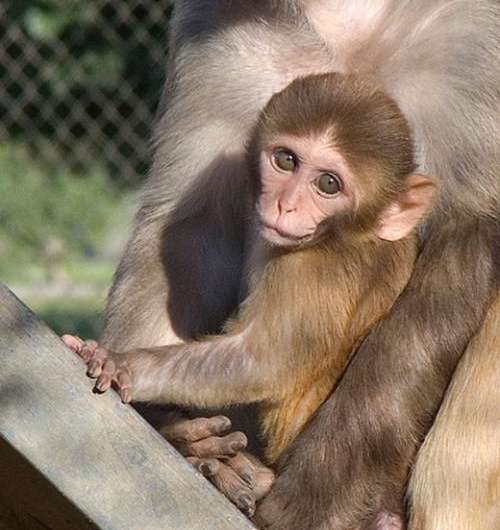Milk protein comparison unveils nutritional gems for developing babies

Human babies appear to need more of a nutritional boost from breast-milk proteins than do infants of one of their closest primate relatives, suggests a study comparing human milk with the milk of rhesus macaque monkeys.
The research team, led by the University of California, Davis, came to this conclusion after developing a new technique for comparing the proteome—all detectable proteins—of human milk with the proteome of the rhesus macaque monkey.
The researchers expect the findings will provide a better understanding of human breast-milk composition and identify fundamental nutrients that should be included in infant formula.
The study, which revealed the first comprehensive macaque milk proteome and newly identified 524 human milk proteins, is reported online in the Journal of Proteome Research.
"Human milk provides a recipe for human nutrition during the neonatal period," said principal investigator Danielle Lemay, a nutritional biologist at the UC Davis Genome Center. "But because so much remains to be understood about milk's molecular composition, we developed a new technique for analyzing milk proteomics that overcomes earlier barriers," she said.
Using this new method, Lemay and colleagues identified 1,606 proteins in human milk and 518 proteins in rhesus macaque milk. These included 88 milk proteins that were common to both species, but at different levels. Ninety-three percent of those shared proteins were more abundant in human milk than in macaque milk.
For example, the researchers found that human milk contained significantly higher levels of milk proteins that help in digestion of fat-like compounds; slow protein digestion; and potentially increase the absorption of iron, vitamin B-12, and vitamin D.
"The higher levels of these proteins in human milk are consistent with the well-established perspective that human babies, compared to other primate infants, are born at a slightly earlier stage of development and require higher levels of specific proteins that will nurture them as they mature," Lemay said.
She noted that these proteins found at higher levels in human milk include specific proteins that are enriched in human brain tissues, suggesting that they may be involved in neurodevelopment.
"Proteins that appear to have neurodevelopmental significance for human babies will be key targets for future research focused on enhancing infant formula," Lemay said.
More information: Journal of Proteome Research, pubs.acs.org/doi/abs/10.1021/pr501243m
Journal information: Journal of Proteome Research
Provided by UC Davis



















